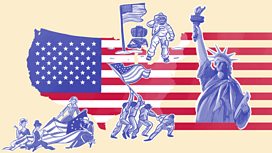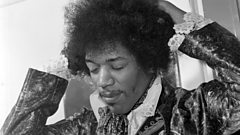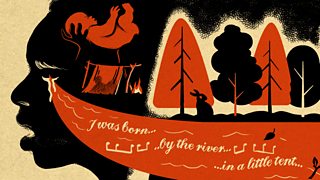The Star-Spangled Banner
Exploring the impact of America's national anthem, which is set to the tune of an English social men's club song. From November 2016.
America's national anthem was written by a lawyer, Francis Scott Key, after watching the British navy bombing Fort McHenry in 1814.
It was set to an English social men's club song and recognized as the national anthem in 1889. Notoriously difficult to sing, and traditionally played at public sports events and orchestral concerts, the anthem has inspired emotion and attracted controversy.
We hear from:
Dr John Carlos who along with Dr Tommie Smith, raised their fists on the Olympic podium in the Mexico City Olympics in 1968 as the anthem was played.
Jose Feliciano who sang the anthem at the 1968 World series and provoked criticism.
Conrad Netting IV who discovered the truth about his fighter pilot father's history which led him to a cemetery in Normandy.
Writer Crista Cloutier who associated it with President Obama's election.
Members of the Coldstream Guards band who played the anthem at the changing of the Guard at Buckingham Palace the day after 9/11.
And Leon Hendrix, Jimi's brother, who was in the army at the time of Woodstock, and was put on 'potato peeling duty' because of the 'dishonourable' version his brother had played.
Producer: Sara Conkey
First broadcast on �鶹�� Radio 4 in November 2016.
Last on
More episodes
Next
You are at the last episode
![]()
Why do Americans love their flag?
How The Stars and Stripes became an emotional symbol of a nation.
Clip
Broadcasts
- Tue 1 Nov 2016 11:30�鶹�� Radio 4
- Sat 5 Nov 2016 15:30�鶹�� Radio 4
- Fri 2 Feb 2018 18:30�鶹�� Radio 4 Extra
- Sat 3 Feb 2018 00:30�鶹�� Radio 4 Extra
- Tue 28 Jun 2022 18:30�鶹�� Radio 4 Extra
- Wed 29 Jun 2022 00:30�鶹�� Radio 4 Extra
Why Sam Cooke's 'A Change Is Gonna Come' became a Civil Rights anthem
Podcast
-
![]()
Soul Music
Series about pieces of music with a powerful emotional impact





